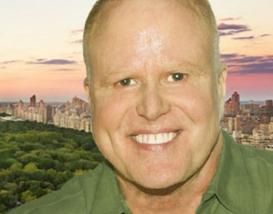ACCEPTED! ONE MFA ACTOR’S SUCCESS STRATEGY by Brian O’Neil
My job as a career coach is to teach actors how to think differently about this business and how they approach it. The events and conversation below took place over a period of more than a year. It began early last spring when an actor contacted me to help him with his auditions for this year’s graduate school MFA programs. He was wise to start early. Here’s what happened.
HIM: I’d like you to coach me on my auditions for grad school. I know that you teach or have taught at most of the good ones.
ME: Okay, bring in a few monologues and let’s see what you have.
(Two weeks later after he auditioned for me)
ME: You’ve probably been told that you’re very good. Because you are. But a lot of actors are, and that’s not enough. The acceptance rate is 2%.
HIM: What should I do?
ME: Get on the websites of all the schools you are auditioning for. Find out when their New York showcase is.
HIM: And?
ME: Normally, I wouldn’t suggest this, but for you I will.
HIM: Suggest what?
ME: Show up. Tell them that you’ll be auditioning for them next year and that you’d love to see the students at work. If there’s a seat, they’ll give it to you.
HIM: And then?
ME: Assuming you liked the work, ask someone if the director of the program is present. He or she will be milling in the crowd. Introduce yourself.
HIM: And?
ME: Tell him/her how much you enjoyed the students’ work and that you’ll be auditioning next year. Again, assuming that you liked the work.
HIM: Then what?
ME: When you write your statement of purpose, mention what you observed having personally experienced the work of the students.
HIM: Then what?
ME: We’ll work on these pieces and others.
(Months later)
HIM: I auditioned. Two of the teachers remembered me from going to the showcase. And another one said I “looked familiar.” I told him why.
ME: Good.
HIM: At a call-back, the program director actually had me answer some questions posed by other actors because I’d “seen the students at work.”
ME: Upshot?
HIM: I got called-back for two, accepted at one and wait listed for the other. The wait listed one is my first choice.
ME: What are you going to do?
HIM: Wait and see.
ME: No, you’re not.
HIM: No?
ME: We haven’t come this far for you to drop the ball.
HIM: So?
ME: Write back to the person who wait listed you. Thank him/her. Say you’ve been called back and offered elsewhere, but they remain your first choice.
HIM: Why?
ME: Because they don’t know that. And it looks good for you to have call-backs and another offer. Shows consistency with your auditioning skills.
(One week later)
HIM: I heard back. My note got me moved me to the # 1 spot on the wait list! They said there will probably be an opening, and if there is, it’s MINE.
ME: Good move. Stay in touch.
(One week later)
HIM: I got in!
ME: The talent was always there. But as I said, it’s there for many. You acted well, but you also acted smart. Congratulations, kid. Ya done good.
Brian O’Neil is an acting career coach, consultant, and audition coach. A former agent and personal manager, O’Neil is also the best-selling author of “Acting As a Business: Strategies for Success,” which is now in its twenty-ninth printing. In the recent past, his students and clients have won Emmys and a Golden Globe (“The Big Bang Theory”), a Tony Award (“Matilda”), been Emmy-nominated (“Girls”), been cast as series regulars (“Orange is the New Black,” “The Walking Dead,” “Bones”) and have appeared in starring roles in feature films (The Coen Brothers’ “Inside Llewyn Davis”). Although he lives in New York City, Brian teaches at virtually every advanced actor training program in the country, including The Juilliard School. For more information about Brian, please visit http://www.actingasabusiness.com.

